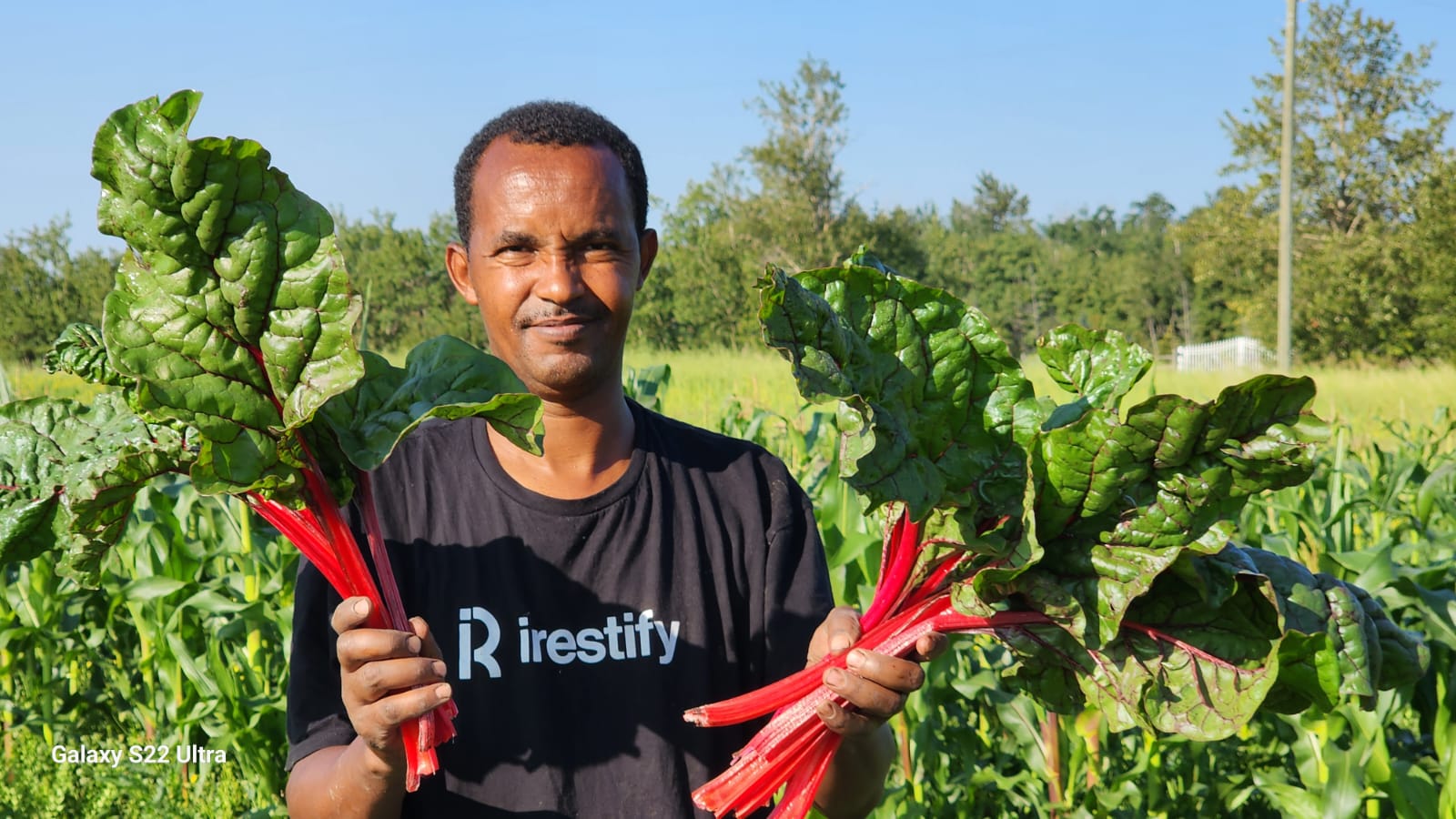Young Agrarians is celebrating the eleventh year of the Business Mentorship Network (BMN) program in BC and the third year of the BMN in the Prairies! The BMN offers farm business mentorship to a diverse array of new and young farmers. The mentorship is offered over the course of a year. Through one-on-one mentorship, peer networks and online workshops new farmers develop the skills necessary to operate ecologically sustainable and financially viable farm businesses.
Applications for Mentees across Western Canada open in October 2025. Mentor applications are accepted year-round. Check out the Business Mentorship Network page for more information!
Meet a mentee from the current cohort and learn about their farm and why they joined the Business Mentorship Network. Want more? Head over to our BMN Blog for more mentorship stories.
Meet a Mentee: Ebsa Silga
Ebsa Silga runs his farm on the outskirts of Edmonton, Alberta, growing thousands of pounds of vegetables every year to supply to small communities within the city. This year, he’s being mentored by Ryan Mason of Reclaim Organics, who, like Ebsa, is working to expand his business into the realm of gaining wholesale contracts with Canadian grocery stores. The two are working together to navigate what that means in terms of regulatory requirements and production scale in order to meet enormous shipping minimums.
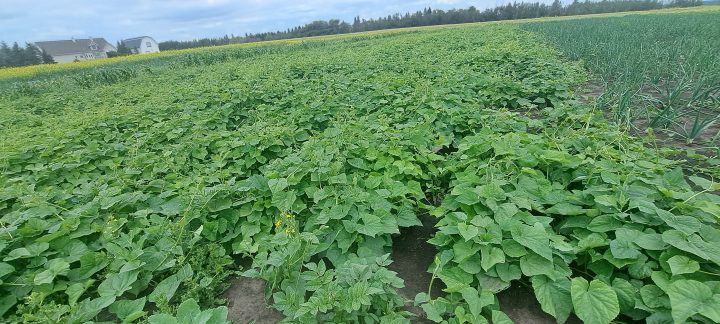 Originally from Dembi Dollo, Ethiopia, Ebsa was first exposed to farming while in the Addo Catholic Mission and BESS Protestant mission schools in Dembi Dollo City, western part of Oromia Region, Ethiopia. Many schools in his area were run by Catholic and Protestant missionary organizations, which received funding to promote and educate about agriculture in schools. Ebsa, with his parents, started a honey operation which grew to have over 200 hives and ultimately funded his entire education in Ethiopia. Much of what he learned about agriculture he attributes to this early experience in running a successful farm business.
Originally from Dembi Dollo, Ethiopia, Ebsa was first exposed to farming while in the Addo Catholic Mission and BESS Protestant mission schools in Dembi Dollo City, western part of Oromia Region, Ethiopia. Many schools in his area were run by Catholic and Protestant missionary organizations, which received funding to promote and educate about agriculture in schools. Ebsa, with his parents, started a honey operation which grew to have over 200 hives and ultimately funded his entire education in Ethiopia. Much of what he learned about agriculture he attributes to this early experience in running a successful farm business.
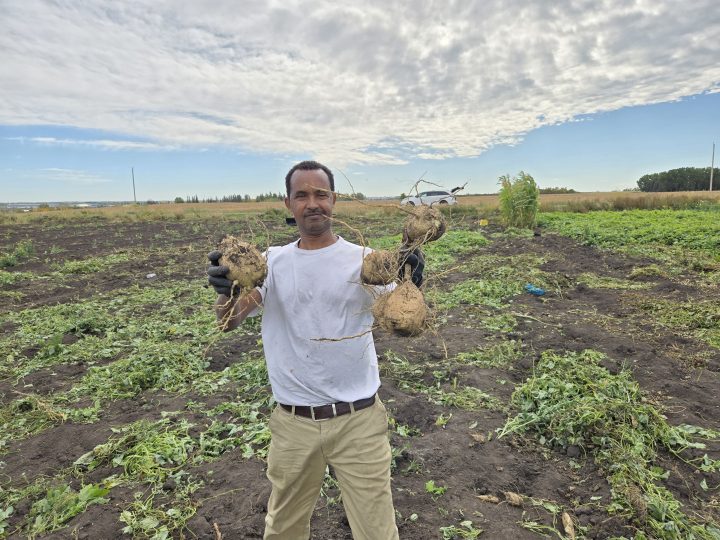
When Ebsa immigrated to Edmonton, Alberta in 2014, he says he toured all around the Edmonton area, staying within 100 km of the city, testing the soil to find the best place for his future farm. While he looked for land, he started growing vegetables in his backyard and tropical plants inside his home. He slowly expanded his growing area in order to provide for people within his community, and eventually found land in 2020 just outside the city with gorgeous black soil, perfect for growing vegetables.
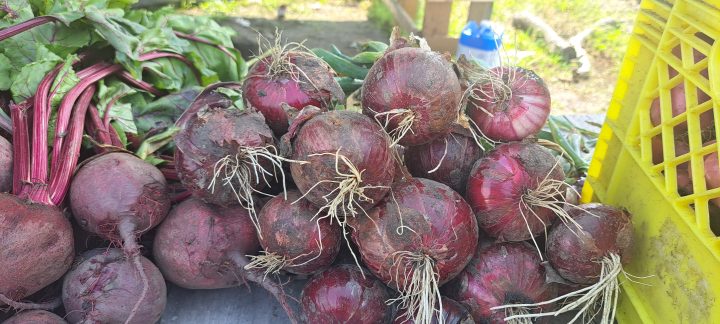
Now, Ebsa is growing on over 35 acres, breeding his own tomatoes, and supplying to communities across Edmonton and even as far as Calgary. He grows red onions, anchote, Ethiopian kale, corn, Swiss chard, beets, tomatoes, lettuce, spinach, potatoes, hot peppers, multi-coloured beans, and organic wheat.
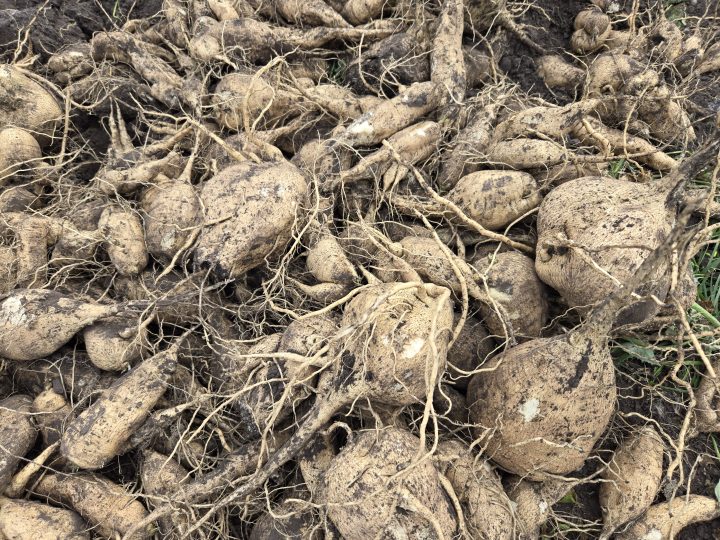
If you haven’t heard of anchote before, don’t worry, you’re not alone! Anchote is a staple crop in Ebsa’s home country of Ethiopia, and when he started growing it in Canada, he got a hugely positive response from members of the Ethiopian diaspora who had been craving this vegetable but were unable to find it in Canadian grocery stores. Anchote is the root of a plant in the cucurbita family, and is marketed by North America seed companies as “Cucamelon”. The root is densely nutritious, particularly high in iron content. Ebsa says he has people contacting him from across Canada desperate to get their hands on this niche vegetable.
Another niche crop Ebsa grows is rue. Used in teas and coffees as a flavouring and a medicine, Ebsa has no problem selling hundreds of rue seedlings to folks who have a hard time finding the plant in larger garden centres.
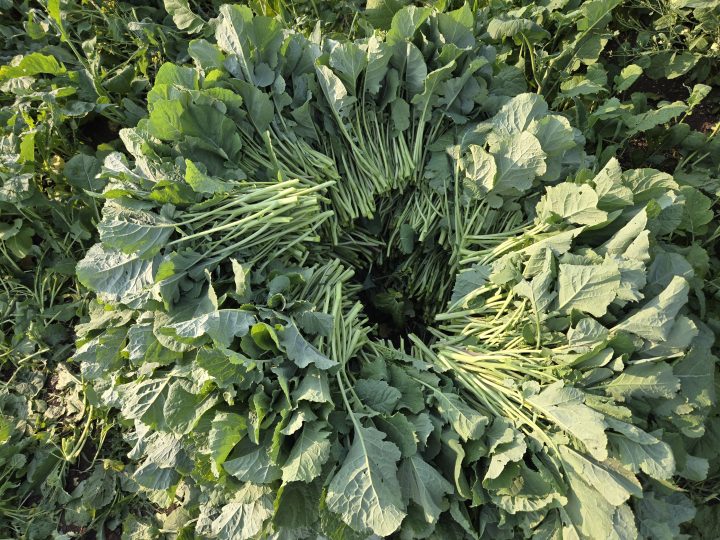
Apart from availability, people buy from Ebsa because he employs organic farming practices, and they know they can trust his product. What’s more, his produce tastes delicious. After trying his potatoes, customers have a hard time going back to the grocery store offerings because of the notable sweet flavour of Ebsa’s potatoes. New immigrants frequently reach out to Ebsa to learn about how to farm in Canada, particularly those from Ethiopia and Kenya where Ebsa has been profiled in several positive news stories.
At the core of it all is Ebsa himself, who admits that farming just makes him happy. He is dedicated to his community and uses his position to help and provide for others. The journey hasn’t been easy, however; funding has been a huge barrier. Gathering funding for a farm business is difficult enough without adding the additional layer of complexity of being a newcomer.
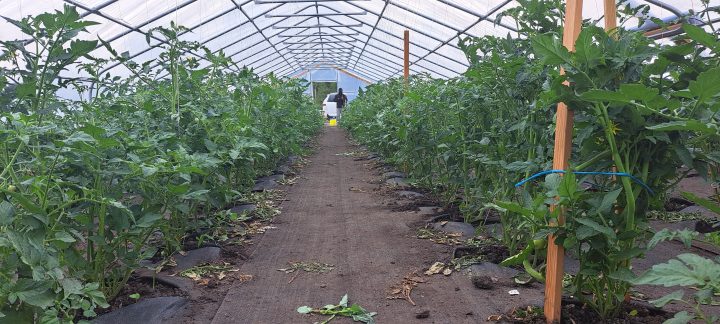
Ebsa is hopeful about the future, however, noting that the response to the threat of tariffs from our neighbours to the south has resulted in Canadians’ increased interest to purchase Canadian-made produce, potentially increasing sales for small Canadian farms like his. This could be a great opportunity for Ebsa, who is almost doubling his overall farm production this year, hoping the markets will be favourable at harvest time.


 Filter by Popular Categories
Filter by Popular Categories